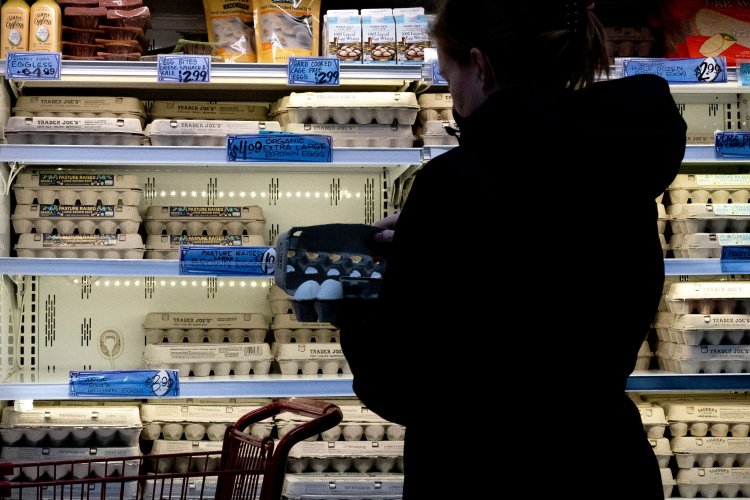USDA redirects funds meant for schools, food banks to $1B bird flu strategy
The decision sets the stage for a significant political battle regarding the Trump administration's priorities, along with the limited funding available for the USDA to allocate.

In February, Rollins introduced a five-step strategy to address bird flu, which includes plans to import eggs and research poultry vaccines. However, this has raised concerns about whether the initiative would draw from new federal funding sources, given the overall trend of budget cuts under the Trump administration.
Instead, it appears that funding for the initiative will come from previously earmarked resources for two food programs that the USDA canceled earlier this year, as reported by the sources who requested anonymity due to lack of authorization to speak publicly.
This decision is likely to spark significant political debate regarding the priorities of the Trump administration, as the USDA seeks to navigate a limited budget aimed at aiding farmers facing financial struggles, controlling an escalating avian flu outbreak, and responding to a growing hunger crisis—all while fulfilling the fund's legal obligations. Furthermore, the ongoing trade conflict between Trump and China may compel the USDA to secure new funding to assist farmers losing access to markets.
The USDA did not respond to multiple inquiries for comment.
During a recent call with congressional staff members, the USDA indicated that the funding for the bird flu response originated from resources allocated to the Agricultural Marketing Service, which is responsible for administering local food programs. However, when a participant specifically inquired about the reallocation of money from those programs, the USDA declined to provide a response, according to a person on the call who also requested anonymity.
Former President Joe Biden had directed $1 billion in funding toward local food programs as part of his initiative to create a more resilient food supply chain. These programs were crucial for schools, child care centers, and food banks to procure fresh produce from local farms, aiding small and mid-sized farms in expanding their operations. The abrupt cancellation of these programs resulted in immediate political backlash in Congress and on social media, as schools struggled to secure funding for fresh food and farmers faced unsold crops.
Food banks are experiencing pressures due to rising hunger needs amid soaring prices. Besides the local food programs, the Trump administration cut approximately $500 million from an emergency assistance initiative that supports food banks across the country, although the USDA claims to be making additional purchases to mitigate these cuts.
The $1 billion intended for food programs, now redirected for the bird flu response, derives from a New Deal-era fund that grants the Agriculture Secretary significant authority to provide disaster relief, support farmers, and respond to market fluctuations. Known as the Commodity Credit Corporation, this fund has an annual budget of $30 billion, but currently, only about $4 billion is available.
The annual replenishment of this fund could face challenges as legislators compete for influence.
Congress must decide whether to replenish or potentially increase funding in the CCC, although achieving this may prove to be challenging. Republican fiscal conservatives are generally wary of any spending from the CCC, and some Democrats have suggested opposing the upcoming replenishment of the fund to protest against the Trump administration's spending restrictions.
The cuts to local food procurement funds illustrate the Trump administration's aim to realign the CCC fund's focus toward its own priorities while curtailing what many Republicans consider the Biden administration’s questionable legal use of these funds.
The $500 million designated for emergency assistance to food banks also originated from the CCC, and the Trump administration has frozen around $2 billion of the $3 billion allocated to the Partnerships for Climate-Smart Commodities, an initiative funded by the CCC that Biden established to assist farmers in minimizing their carbon emissions and adapting to climate challenges.
Celia Cole, CEO of Feeding Texas, noted that some food banks are hopeful Congress will establish permanent funding for the local food programs. Until that happens, her state's network of food banks will rely on private donations to maintain at least a portion of their contracts with farmers.
“I know this administration is committed to reevaluating and focusing on decisions made in the past administration,” Cole stated recently. “For us it’s a matter of making sure in the interim we can meet the need.”
Olivia Brown for TROIB News
Find more stories on Business, Economy and Finance in TROIB business












